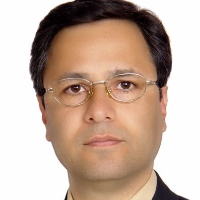The Study of Social Factors' Role in Phonological and Lexical Variations in Hawrami (Paveh Dialect) based on Variationist Sociolinguistics
Author(s):
Article Type:
Research/Original Article (دارای رتبه معتبر)
Abstract:
This paper offers a study of phonological and lexical variations in Hawrami (paveh dialect) based on Variationist Sociolinguistics. In this paper the influence of two non-linguistic factors (age and gender) on one phonological variation (use of allophone]d[instead of]d[in final position) and two lexical variations (use of a compound noun instead of the words /bαwα/ and /dαdα/ meaning “grandpa” and “grandma”, respectively and the use of the word /waratαw/ instead of / war/) in a group of 60 people (30 men and 30 women) from 4 age groups were studied. Data gathered from main group compared with data gathered from standard group which consists of illiterate men and women who were older than 60 and finally, one phonological variation and two lexical variations that have the most differences among standard and main group were chosen. The results indicated that there is no meaningful relationship between age, gender and phonological variation. In lexical variations women use combined address term (/αdα/ + first name) for addressing their grandmas more than men. There is a meaningful relationship between age and the use of combined address terms, too. There is a meaningful relationship between gender and using /waratαw/ instead of /war/.
Keywords:
Language:
Persian
Published:
Journal of Western Iranian Languages and Dialects, Volume:10 Issue: 39, 2023
Pages:
21 to 38
https://magiran.com/p2527976
مقالات دیگری از این نویسنده (گان)
-
Aspect and Coercion in Kurdish: From the Predicate Level to the Clause Layer
Rahman Veisi Hasar*, , Mohammad Ahmadnejad
Language Related Research, -
Conceptual Metaphors of Corona in Surani Kurdish Language
Seyedeh Sareh Sadeghi *, Leila Akbari,
Language research,



